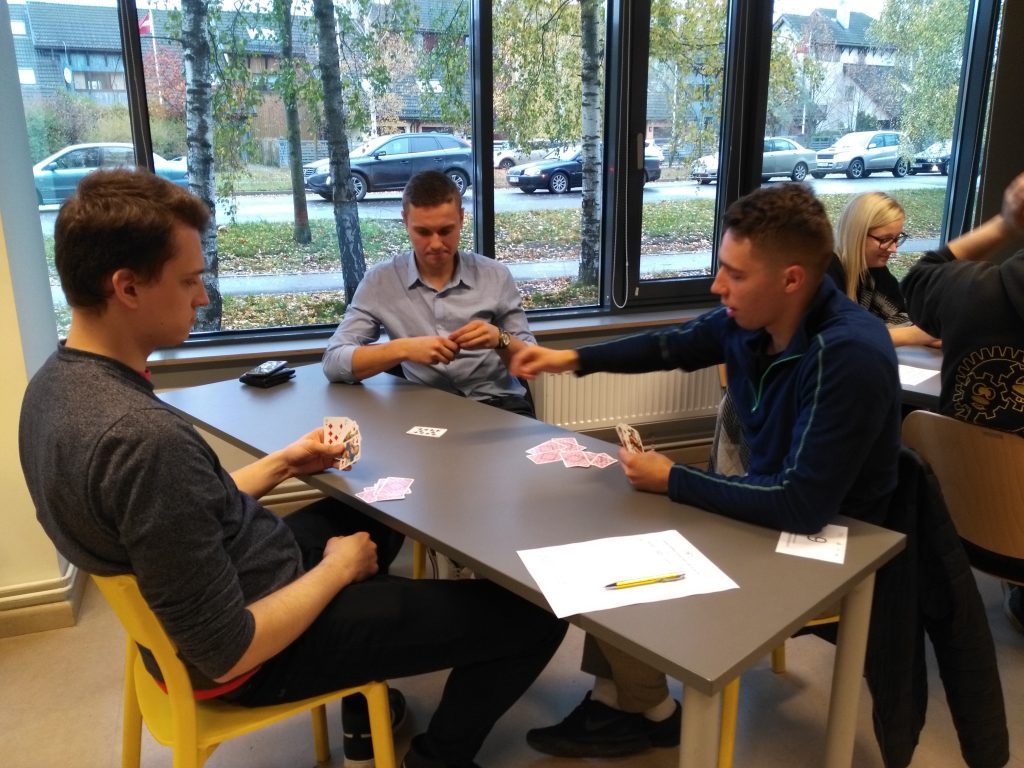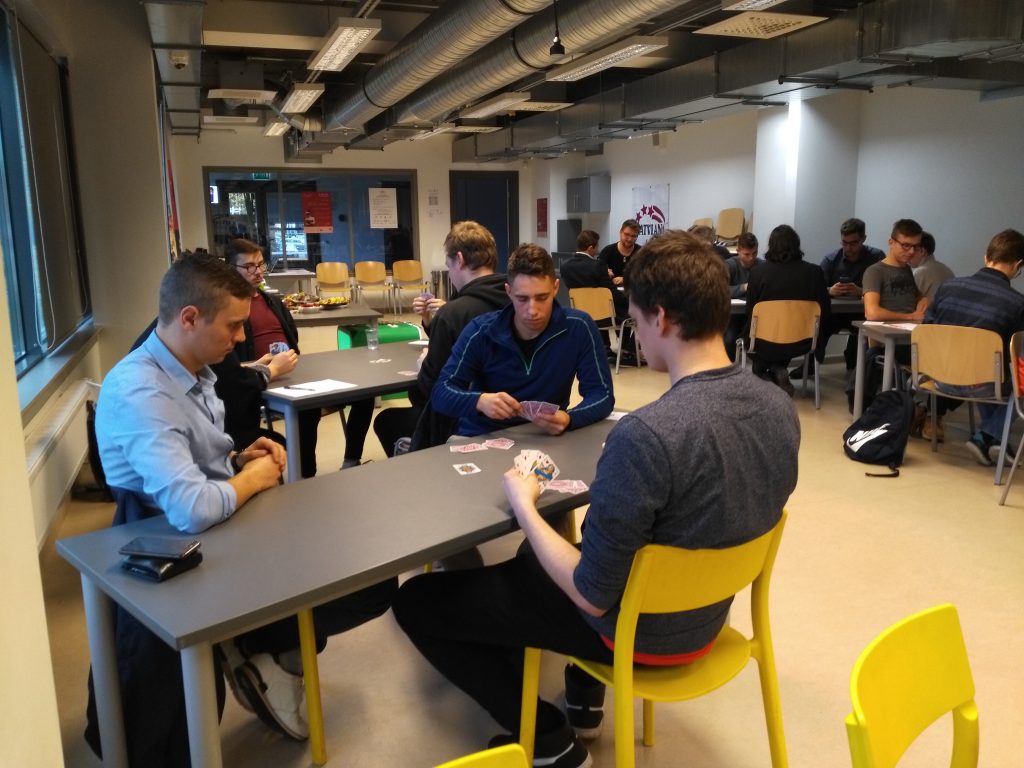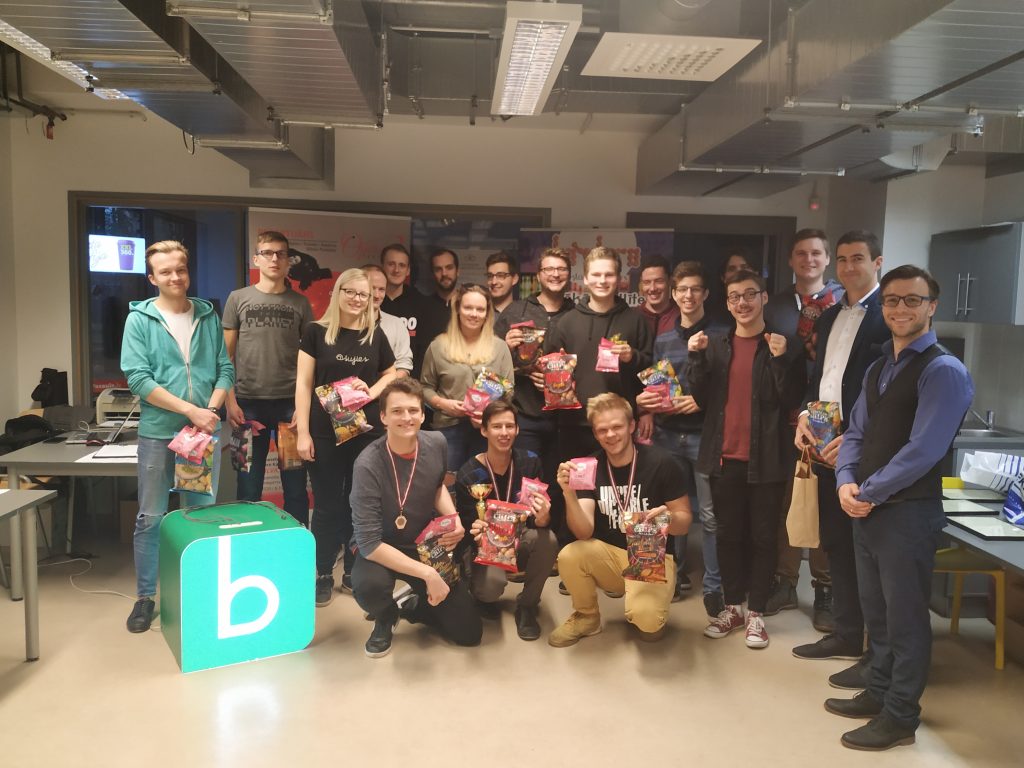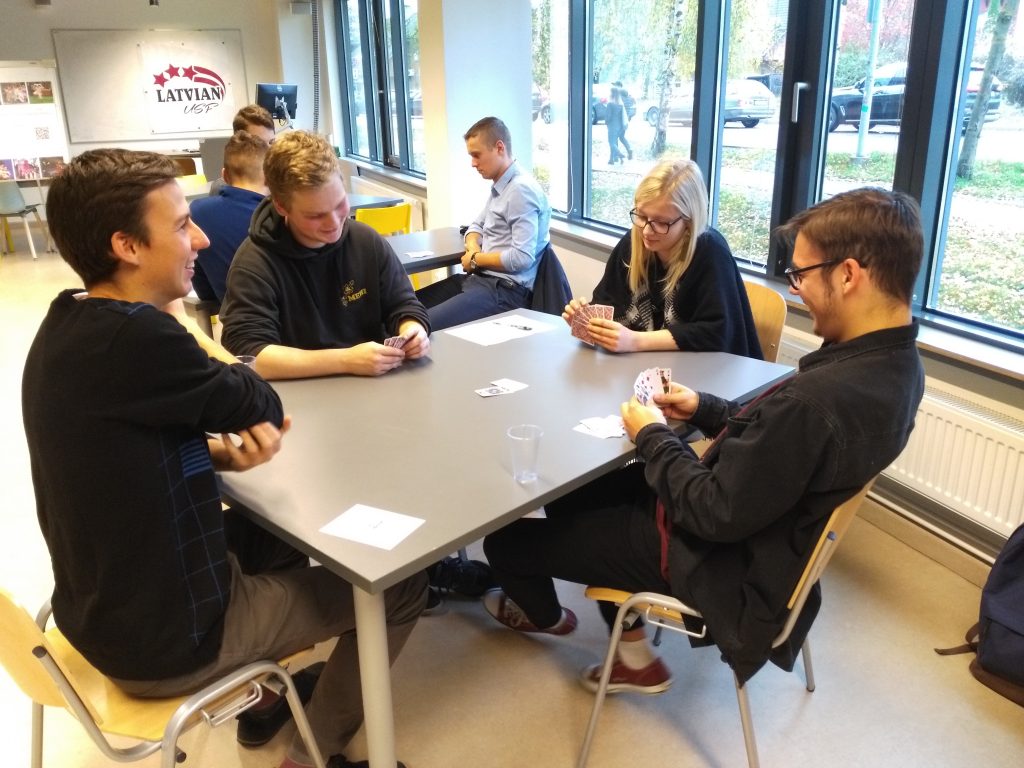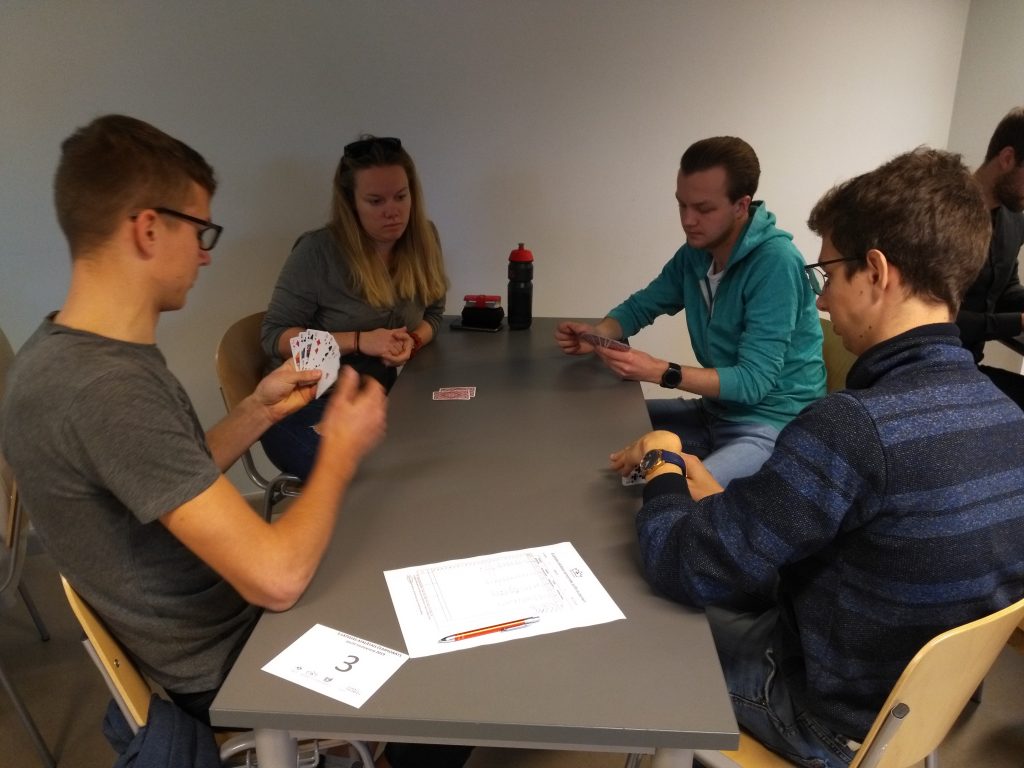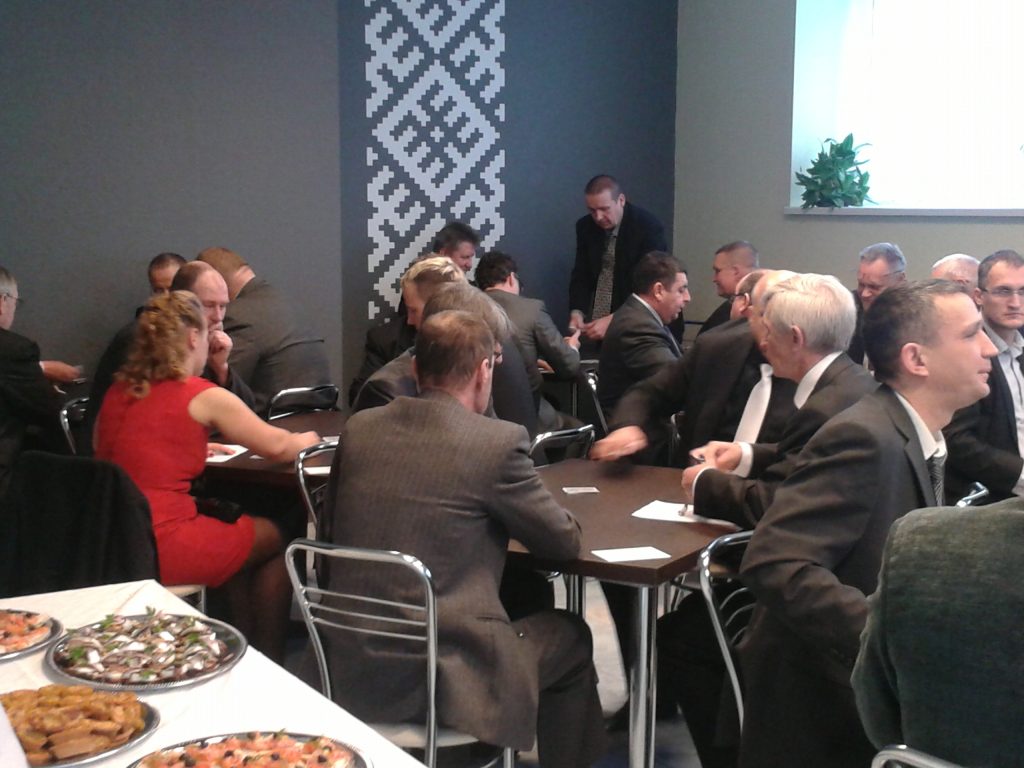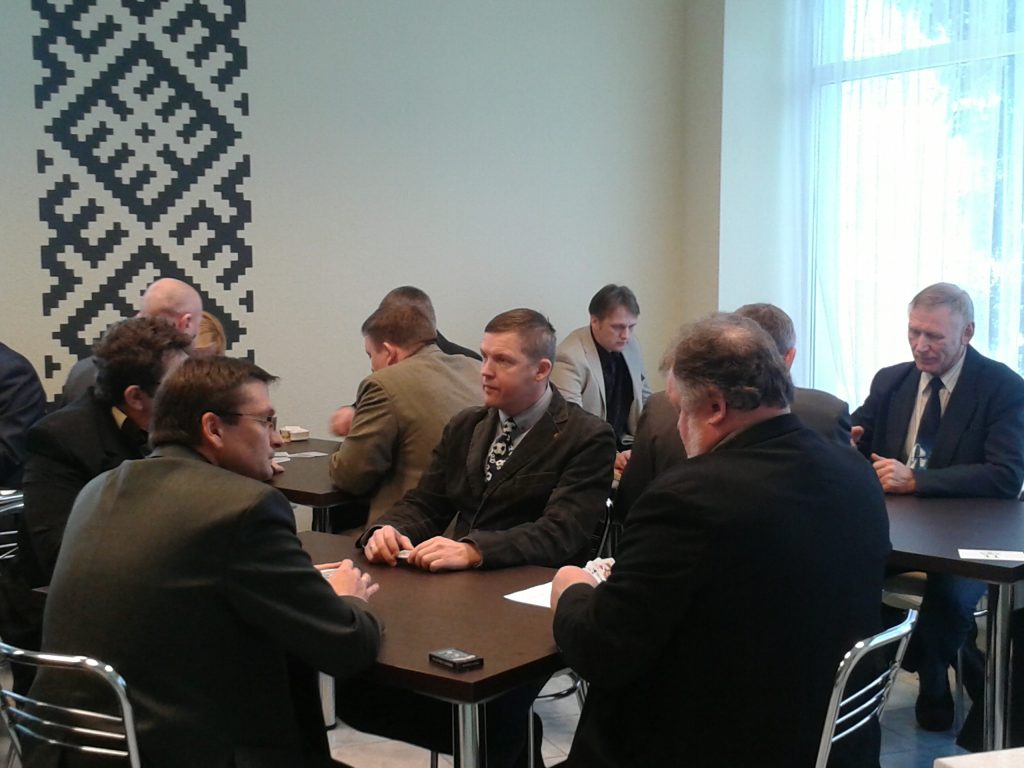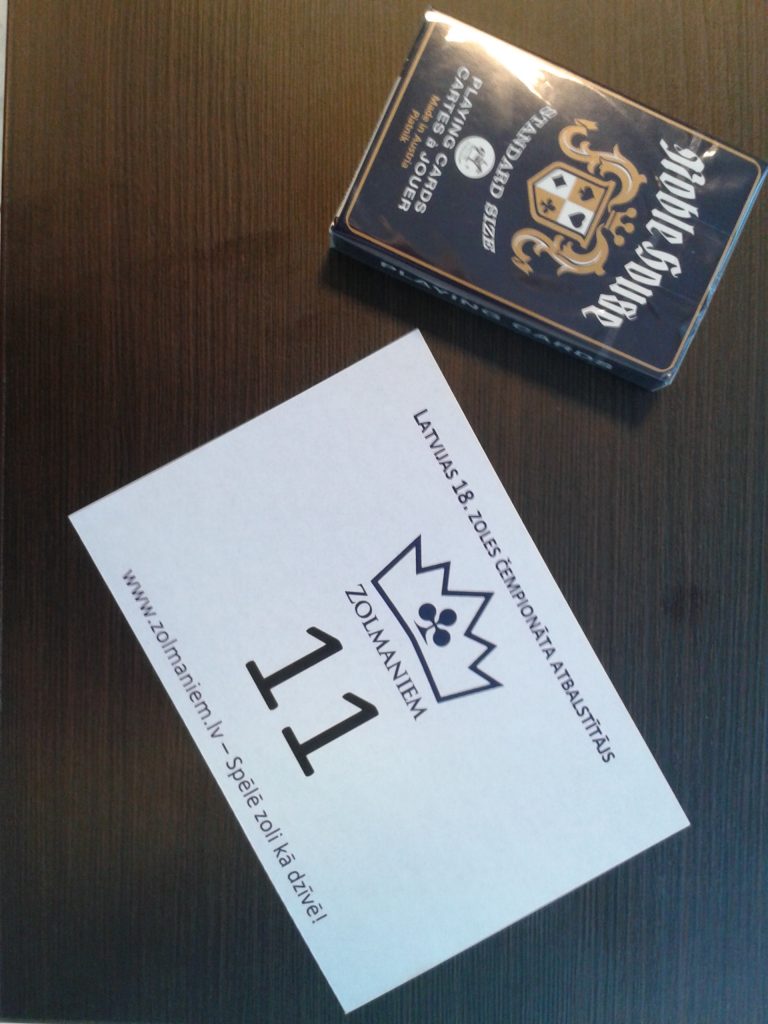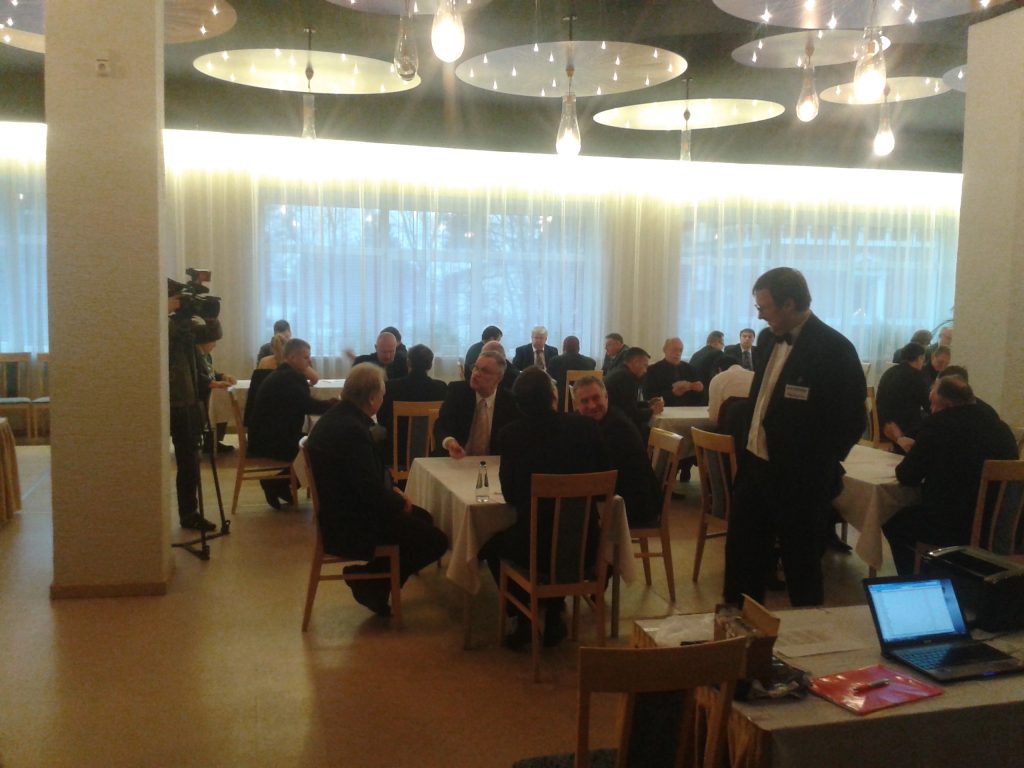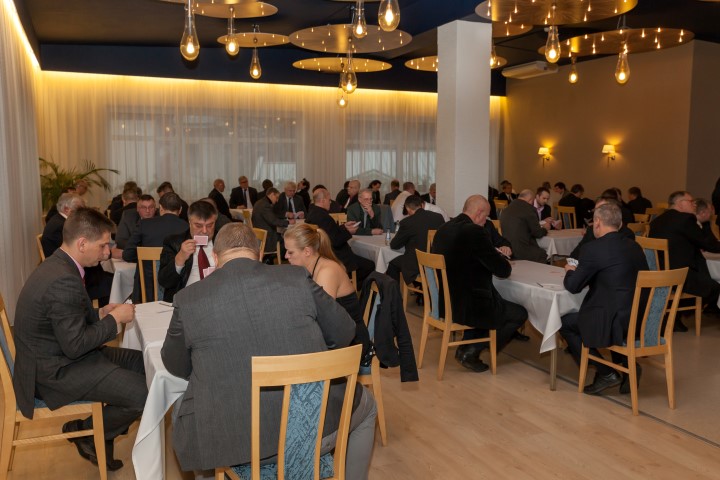Author:
Mārtiņš Plēsums
Oral traditions and their expressions, including language as a vehicle of intangible cultural heritage
Music/performing arts
Title
Latvian card game zolīte (2021)
Zolīte, zole, rarely – revelīts.
Geography
Zolīte is played throughout Latvia and also in Latvian diaspora communities outside Latvia.
In Latvia, zolite players are mainly Latvians, but it also is played by other nationalities. Zolīte players range from young to old age, from students to well-known people. Most are men aged 35–65. The zolite community consists of people who are united by playing a game that makes it possible to involve and exercise the mind, think, stimulate memory, and have a fun time. Playing zolīte can be a family tradition or an activity within work or hobby clubs, as the community consists both of hobby-level players and professionals that have united in zolīte clubs. The Latvian Zolīte Federation has a significant role in maintaining the tradition. The most professional zolīte players have joined and actively participate in zolīte tournaments organised by the Latvian Zolīte Federation (LZF). Each year, the LZF organises the Latvian Zolīte championship, which brings together the best players of the zolīte community (~120–150). In recent years, online play has had a large role in maintaining the zolīte tradition. There are multiple sites that offer zolīte online – one is www.zolmaniem.lv, which gathers players for convenient online games. Additionally, zolmaniem.lv also plays a role by organising online zolīte tournaments, and collaborates with multiple Latvian municipalities, increasing the visibility of online zolīte tournaments as a good and valuable way for players from across Latvia to spend their time. There are many zolīte clubs, for example, the Riga Zolīte Club, the Riga Latvian Society Zolīte Club, etc.
Importance in Community Life
Zolīte in Latvian society is regarded as a Latvian card game. Amongst zolīte players, it has earned the title of 'Latvian national card game'.
There are skill- and luck-based card games. Zolīte is a skill-based game because a player needs good playing skills and a sharp mind more than luck.
This card game is known not only as zole, but also zolīte, and used to be called revelīts, as mentioned in Emanuel Lasker’s 1931 book Card Games. It is not known exactly when the game was first played in Latvia, however, it is clear that the game belongs to the German card game class Schafkopf (games of this class have certain trump cards – all queens or all jacks, or sometimes both – that are stronger than all other trump cards.)
This unique way of playing with 26 cards is characteristic only of Latvian zolīte.
Zolīte is a special skill-based card game which has a unique set of rules that are not characteristic of any other skill-based card game.
Zolīte plays many roles in society, with the main one being the opportunity for people of different generations and genders to spend quality time together. Similarly to the English game of Bridge, zolīte is a skill-based card game that helps players to sharpen their mind, improve their memory and develop their logical and analytic thinking – these aspects are valuable and important both in youth (for developing the mind) and old age (maintaining mental clarity), while simultaneously having fun, of course, and encouraging players to develop playing skills with both friends and strangers.
Zolīte is a game for sharpening the mind, not playing for money. Zolīte is a skill-based card game and, according to the Gambling and Lottery Law of the Republic of Latvia, is not considered to be a gambling game – also confirmed by the gambling and lottery inspection.
Activities
Usually, zolīte is played by 3–4 people and 26 cards are used from the deck. Zolīte is mainly played at home (amongst family or friends), in different tournaments or competitions, as well as online (including online tournaments).
In-person tournaments fall under one of two categories:
1) Rating tournaments organised by the Latvian Zolīte Federation. Tournaments take place nearly every weekend and tournament dates and details are published on the LZF homepage www.zolei.lv. Altogether, around 400 players participate in the rating tournaments, which can be considered active representatives of this mind sport. The following tournaments are traditionally held each year: The A and B finals of the Latvian Championship; The Latvian Zolīte Federation TOP 50 zolīte tournament; the commemorative tournament of zolīte professor Edgars Tarānovs; The Grand Celebration Tournament in Valka, and many others.
2) Other tournaments that are classified as hobby tournaments, not rating tournaments, like the Carnikava Lamprey Festival Zolīte Cup; the Olaine Zolīte Championship, tha Garkalne Municipality Zolīte Championship; the More Open Zolīte Championship, and many others.
The Latvian Zolīte Championship is organised every year in December by the LZF. The federation offers a set number of highest ranking players of the Latvian zolīte player ranking system a chance to participate in the championship, which is held in two stages. Stage B invites all players ranked within the top 200, and 30 players from this group then earn the opportunity to participate in stage A, or the finals of the championship, which has a total of 50 participants (30 from stage B and all players that hold the title of zolīte master or grandmaster). The zolīte rating system gives each player points for certain accomplishments in LZF-organised zolīte tournaments. These LZF tournaments have additional criteria that need to be met for top ranking participants to earn points. For example, the tournament must abide by the rules of the minimum number of players in the tournament, the allowed number of stages, games to be played in each stage, and other prerequisites. Tournament organisers communicate with the LZF to obtain the necessary coordination so that the results obtained by the zolīte tournament players are listed in the common zolīte rating system. The Latvian zole championship and most of the tournaments coordinated with the LZF play the so-called classic zolīte – the zole is played with pules, without “minors”, and without all kinds of dark "zoles".
Some notable people are also known to organise private tournaments, such as the Līgo zolite tournament organised by Raimonds Gerkens. (The annex contains interviews with different participants in the 2015 tournament).
Beliefs, Rituals, Unwritten Rules
There are several beliefs and rituals, but they are mostly held by each player individually and thus most often not disclosed to others. For example, to ensure luck in the tournament, the player must carry their lucky deck in their pocket, or at least one article of clothing must contain playing card symbols.
There are some unwritten zolīte rules, i.e., if while playing the game the “major” (one player who, in the specific game, is playing against the other players) loses in “jaņi” (a special type of loss in zolīte when the “major” has gathered 30 or fewer points during the game), after the end of the game, the other players stand to show respect to the “major”.
When playing in an informal setting, if the major plays a trump, players must give a light whistle.
When playing a game that is special, peculiar, complicated or unusual in any other way, players like to share their knowledge to perform a collective post-game analysis, and often have a good laugh if an amusing situation has occurred.
There are also some dark sides of the game – players cheating, playing for money, showing unbecoming behaviour during a tournament. Such actions have dire consequences, of course: after the tournament, the referees inform the Latvian Zolīte Federation, which then disqualifies the player and restricts them from participating in official zolīte tournaments.
Inheritance and transmission
One can inherit zolīte playing skills by 1) learning from another player (the best option), 2) self-teaching, by reading the rules of the game. The best way to learn is to play with others in-person, because players can give each other valuable advice. When playing online, the opportunities for knowledge exchange and communication are more limited by time, because online games are faster (due to the cards being dealt by a computer program), therefore there is no time to discuss the game. It is more difficult to learn to play zolīte on sites that don’t offer a chat or discussion function.
History
Based on information that is available in the book Zolīte Latvijā un pasaulē (Zolīte in Latvia and around the World), published in 1996 by the writer and former president of the Latvian Zolīte Federation Andris Kolbergs, the exact origins of zolīte are not known. We know that it has been played in Latvia for a long time, and the first written records on the rules of zolīte were written in Emanuel Lasker’s 1931 book Card Games, where zolīte is called revelīts or zole. Lasker’s 1931 book was re-released in 1991 under the name Kāršu Spēles. Kolbergs’s book also reveals about the origin of the game:
“The first descriptions of this game can be found in Germany already in the mid-19th century. Zolīte is a variant of the so-called "endischer Schafskopf", specifically "Drei endsch". The standard Schafskopf is played by four players, but Drei endsch is played by three. Zolīte is something between the normal Drei endsch, which is played with 32 cards, and the quick Drei endsch, played with 24 cards. Zolīte is played with 26 cards. I have looked through a vast number of German card game books, but found none that mention the Schafskopf variant that Latvians play. It must then be concluded that zolīte is a special Baltic variant of Schafskopf. The Latvian name zolīte likely comes from the word solo, because one is always playing against two.”
The most experienced players say that zolīte was played in the interwar period and during the soviet era. Zolīte used to be very popular among students.
The 21st century has opened certain opportunities, since zolīte can now be played online. On one hand, this allows experienced players to maintain their skill more easily and conveniently. On the other hand, it can be observed that fewer young people are learning the game, because many other games can also be played online.
The important benefits that zolīte offers have always been very relevant – especially now that there are so many entertainment opportunities that, sadly, do not give any real benefit to one’s mind. Of course, zolīte, like any other mind-based game, is more difficult to learn, so zolīte is played by fewer and fewer people. More people now prefer games that do not require as much mental effort as playing zolīte. Zolīte used to be a reason for meeting together, but nowadays is mostly played online. The ability to play zolīte online can be seen as a pivotal point in the further development of the tradition, since the technological opportunities now allow people to play zolīte more easily and at any time and place, therefore maintaining this intangible cultural heritage.
Additional Information
Zolīte has a special player lexicon – the vocabulary they use both to name specific cards and their combinations (naked ace, kreicene, pīķene, jelgavnieks, platais, pusplatais, etc.) and expressions – you’ll find luck in love, the table is not a pig, garām (past), nokosties (take a bite out of), etc. More can be read in the attachment Zolītes noteikumu manuskripts in the second section – Explanations of terms and expressions used in the game.
Other nuances of knowledge and skills are revealed in the attached audio files.
Masters
The Latvian Zolīte Federation has developed a special rating system that allows players to earn the title of zolīte master and grandmaster – people with these titles have mastered zolīte to the highest levels: they can justify their every move, use their mind and memory to evaluate the possible distribution of cards among players, and can memorize a large amount of information – the used and remaining trump cards, points earned by them and others, etc. According to the Latvian Zolīte Federation’s 2020 Latvian Zolīte Player ranking, from the 370 players who made it into the ranking, Ojārs Polis ranked 1st, Raimonds Skuja ranked 2nd, and Normunds Dāvidsons ranked in 3rd place.
Some of the most skilled and knowledgeable zolīte players and organisers of community life in Latvia are active zolīte players with the Master and Grandmaster titles. Based on evaluations of the Latvian Zolīte Federation, some of the very best grandmasters are Raimonds Skuja, Uldis Plieniņš, and Ilgvars Gritāns. However, most of the great zolīte players of today will admit that the very best zolīte player is the late Edgars Tarānovs, who among other zolīte players had earned the fitting nickname 'professor' because of his top tier playing level. To honour him, the Latvian Zolīte Federation organises an annual commemorative tournament "The professor Edgars Tarānovs commemorative zolīte tournament”.
More information can be found in the attachment Summary of Zolīte Player Statistics.
Institutions and Organizations
The Latvian Zolīte Federation (the first zolīte federation was founded in 1996, while the current Latvian Zolīte Federation was founded in 2014).
Multiple online sites that allow playing zolīte online, i.e., www.zolmaniem.lv and others.
Different zolīte clubs, for example, the Rīga Zolīte Club (founded in 2014), the Mārupe Zolīte Club (founded in 2017).
Multiple Latvian municipalities and cities where zolīte tournaments are organised as part of city or municipality festivals or as a part of other traditional tournaments, including Ādaži, Amata, Carnikava, Valmiera, Valka, Jēkabpils, Bauska, Ikšķile, Rīga, Inčukalns, Garkalne, More, Olaine and others.
Also, the Riga Technical University, Rīga Stradiņš University, the Latvian University Sports Federation and other supporters who offer great support in organising the Latvian Open Zolīte Championship for Students.
Strengthening the Tradition
1. By the Latvian Zolīte Federation – since 1996., the Latvian Zolīte Championship is organised annually (except for 2020 due to the COVID-19 pandemic). The Latvian Zolīte Federation intends to continue this event.
2. By The Latvian Zolīte Federation and SIA ZOLMANIEM – since 2015, the Latvian Zolīte Championship for Students is organised annually (except for 2020 due to the COVID-19 pandemic). SIA ZOLMANIEM in collaboration with The Latvian Zolīte Federation intend to continue organising these championships.
3. By different companies – the option to play zolīte is offered online. SIA ZOLMANIEM and other zolīte playing sites intend to maintain this option.
4. The Latvian Zolīte Federation and SIA ZOLMANIEM have begun work on a manuscript for a new book on zolīti which will include rules and other information, such as the names of all zolīte championship winners since 1996 and the zolīte code of ethics. SIA ZOLMANIEM, in collaboration with the Latvian Zolīte Federation, plans to release this book.
These activities have had a positive impact. Organising Latvian championships helps maintain the zolīte tradition at a professional level. Organizing the Zolīte Championship for Students involves younger players and increases the popularity among youth. Writing new and current rules of zolīte helps maintain the rules of zolīte, at least virtually, by publishing them on online zolīte sites, helping to maintain the playing skills on a larger scale than has been possible in in-person games.
So far, the tradition has received support in the shape of venues provided for the Latvian Zolīte Federation championships, volunteer work, and donations for the prize pool.
Continuity/Development
1. Research will be conducted to find out how the English card game bridge achieved its recognition as a sport, to do the same for zolīte, since zolīte is also a mind-based game as well as a sport, similarly to bridge and chess. SIA ZOLMANIEM plans to conduct this research in collaboration with the Latvian Zolīte Federation.
2. Deeper research into the history and origins of zolīte will be conducted – SIA ZOLMANIEM plans to conduct research in collaboration with the Latvian Zolīte Federation.
3. A new book on zolīte will be published, which will include the current rules and other information on zolīte, such as the names of all zolīte championship winners and the zolīte code of ethics. SIA ZOLMANIEM plans to publish this book in collaboration with the Latvian Zolīte Federation.
These actions are planned within the next 5 years with funding from donations received by the Latvian Zolīte Federation, as well as funding from sponsors and collaborators.
1. Develop a new online zolīte playing site that adheres to the current rules of zolīte (as they currently are after clarifications and corrections of the zolīte rules made by the Latvian Zolīte Federation), as well as the introduction of the option to hold Latvian zolīte championships online – planned by SIA ZOLMANIEM in cooperation with the Latvian Zolīte Federation
2. The organisation of Latvian Zolīte championships will be continued – conducted by the Latvian Zolīte Federation.
3. All living Zolīte championship winners will be interviewed in order to gather their wisdom and valuable opinion on this important Latvian card game – planned by SIA ZOLMANIEM in cooperation with the Latvian Zolīte Federation.
4. A special guide will be prepared for young players to learn zolīte more easily and faster – planned by SIA ZOLMANIEM in cooperation with the Latvian Zolīte Federation.
5. A new book on zolīte will be issued – planned by SIA ZOLMANIEM in cooperation with the Latvian Zolīte Federation
These actions are planned within the next 5 years with funding from donations received by the Latvian Zolīte Federation, as well as funding from sponsors and collaborators.
1. Promote zolīte in Latvia, involving more younger generations;
2. Promote zolīte to the wider public;
3. Promote a positive image of zolīte so that it is associated with a mind-based card game;
4. Develop zolīte as a form of mind sport.
Threats to the Tradition
Since Kolbergs's 1996 book on zolīte, which also included the rules, the rules have, in fact, slightly changed over time. This knowledge is currently only maintained among active players, mainly those players who participate in zolīte tournaments across Latvia – the number is only ~ 400 (four hundred) people. As a result, online zolīte is often not played according to the current zolīte rules. As a result, the actual rules of the game and their details are currently undefined and unfixed, and the continuity of the game is at risk.
Most of the games are called "classic zole", which means that you play a game of zolīte with the option to play either "big" or “zole", but if no-one enters either of these two options, then one "pule" is recorded and the cards are redrawn for a new game. However, there are other variants of play, such as “small zole” and “table”. At present, there is a lack of research to draw valid and reasoned conclusions about how the playing habits of players have changed over time in relation to the different types of the game. There is a hypothesis that the option to play “small zole” has been increasing in popularity.
Another threat to the tradition is the decreasing number of players, which is shown by the fact that few students and general youth know how to play the game. The reason is the opportunities for digital leisure of the 21 st century; the ability to play zolīte online has not only brought changes to the tradition, but also raises the issue of competition with other online games and offerings. One of the threats is also the level of public perception of card games, linking them gambling and playing for money, not the sharpening of mind and having a good time.
Applicant
Mārtiņš Plēsums
Photo Gallery
Audio Materials
Video Materials
Text Materials
Publications
Kāršu spēles: Rokas grāmata visiem, kas vēlās iemācīties kāršu spēles, derīgi padomi, aizrādījumi un paskaidrojumi tiem, kuri jau spēlēt prot (Card Games: a handbook for all who wish to learn card games, with useful hints, tips and explanations for those who already know how to play). Compiled by Dr. Emanuela Laskera and others. Riga: Praktiskā Bibliotēka, [1931].
Kāršu spēles: rokasgrāmata visiem, kas vēlas iemācīties kāršu spēles, derīgi padomi, aizrādījumi un paskaidrojumi tiem, kuri jau spēlēt prot / Sastādīta pēc Emanuela Laskera u.c. autoriem. [Rīga]: Atbalss, 1991.
Kolbergs A. Zolīte Latvijā un pasaulē: Rokasgrāmata pratējiem, nepratējiem, sacensību rīkotājiem un tiesnešiem (Zolite in Latvia and in the World: a handbook for practitioners, non-practitioners, competition organisers and referees). With the participation of Latvijas Zolītes Spēles Federācijas (LZSF) chief referee Pēteris Aleksandrovičs and historian Kārlis Kangeris (Stokholma). [Riga]: Latvijas Zolītes Spēles Federācija, 1996.
Websites
The website of the Latvian Zolīte Federation – information on zolīte; in-person and online tournaments and other events about zolīte.
The article on Zolīte in Wikipedia – general information on zolīte in Wikipedia
Zolmaniem.lv – Online zolīte playing site
Raccoonzole – Online zolīte playing site
Zole Spoki.lv – Online zolīte playing site
Spelezoli.lv – Online zolīte playing site
Zolmaniem.lv zolīte page in the social media site draugiem.lv – zolīte page in the social media site draugiem.lv
Zolmaniem.lv zolīte page in the social media site facebook.com. – Zolmaniem.lv page on the social media network Facebook.com
An old video on a zolīte tournament in Saulkrasti – An old video on a zolīte tournament in Saulkrasti
A podcast on zolīte. – A podcast on zolīte.
News Article: – Collection of signatures for the inclusion of zolīte in the general education curriculum.
On the collection of signatures for the inclusion of zolīte in the general education curricula. – Card game to be included in the general education curriculum.
Zolīte Masters and Grandmasters – The best Latvian zolīte players with the titles Master and Grandmaster.

